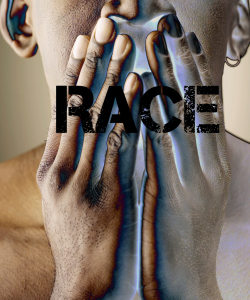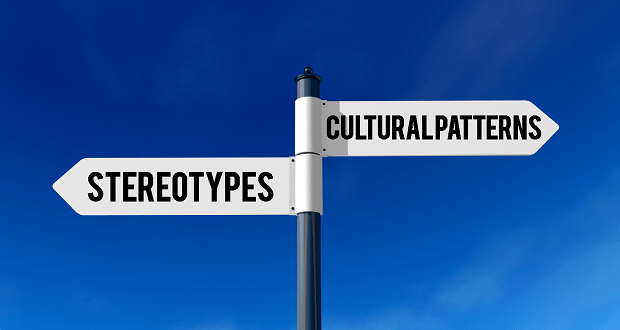*For the purpose of this piece, I mean “Black and White” when I refer to race. Even though race is broader and more complex, from a US historical context, racial differences have played out along these lines.
 We easily talk about generational diversity. There are all sorts of programs focused on women. The topic of the aging population does not seem to make us squeamish. We even have a certain comfort level discussing cultural differences such as ethnicity (e.g. Asian Americans, Latinos.) Not surprising, authentic discussions pertaining to LGBT issues are still rare, but it is surprising to me that open dialogue about race is still just as unlikely. I am not surprised about LGBT because society has just recently had 180 degree shifts in attitudes on this topic. The elimination of “don’t ask, don’t tell” policy for military personnel was as big an ideological reversal as the ban on segregated troops in the military that occurred in 1948.
We easily talk about generational diversity. There are all sorts of programs focused on women. The topic of the aging population does not seem to make us squeamish. We even have a certain comfort level discussing cultural differences such as ethnicity (e.g. Asian Americans, Latinos.) Not surprising, authentic discussions pertaining to LGBT issues are still rare, but it is surprising to me that open dialogue about race is still just as unlikely. I am not surprised about LGBT because society has just recently had 180 degree shifts in attitudes on this topic. The elimination of “don’t ask, don’t tell” policy for military personnel was as big an ideological reversal as the ban on segregated troops in the military that occurred in 1948.
Since we have been addressing racial inequities for at least 300 years, if you start counting from the abolitionist movement that commenced in the early 1800’s, you might think that by now we would be further along in our ability to have open discussions about race.
From my point of view, there was a sigh of relief on the part of many Whites when we adopted the broader definition of diversity. It was no longer just about race and gender, which we would all admit was the primary focus of the early work in this area, before we embraced the term “diversity” to describe the inherent differences and similarities that exist among people to include gender (from the perspective of both men and women, not just women) ethnicity, geography, communication styles, language, thinking styles, education, socio-economic status, etc.
I will never forget a situation that happened with a client a few years ago. He was introducing me as the facilitator for the session. He said, “Mary-Frances told me that diversity is not about race and gender anymore.” I know that I visibly reacted with a shocked looked on my face. (I did not mean to but I was so taken aback, I could not help it.) How was I going to clean that one up? I tried as best I could throughout the session to emphasize that diversity was not only about race and gender but that race and gender were clearly still critical dimensions of diversity that needed to be understood.
I want to focus this piece on the race part because I do think that we are addressing women’s issues. Don’t get me wrong, there are still glaring global gender inequities in society that persist in workplaces. I do not want to leave the impression that I think gender is not still an important dimension of diversity. My point, quite simply is that we are talking about it, even though we may be taking way to long to achieve parity.
When it comes to race, we still don’t even want to talk about it. There is a decline in the demand for training programs that focus solely on the diversity dimension of race. Where is the organization that is the counterpart to Catalyst for race issues? That is, who is doing the groundbreaking research on workplace issues related racial progress? Who hands out awards to companies that have excelled in the area of race?
The Urban League still produces an annual report called the State of Black America which concludes that little real progress has been made since the 60’s in many areas such as employment, education, health, and socioeconomic status. The Joint Center for Political and Economic Studies researches and reports primarily on issues impacting Blacks. Black Enterprise Magazine recognizes the top companies for “diversity” with a focus on honoring those companies who stand out in the area of advancement of African Americans and per their description “other ethnic groups”. Truth be told, the Black Enterprise list does not carry the same cache as rankings such as DiversityInc (these are just observations not judgments). DiversityInc does recognize the best companies for African Americans as well as other groups but most companies do not vie to get on the top 50 list, to be specifically recognized for their achievements with African American employees. If that happens, it is a nice bonus.
Race seems to now be lumped into the bigger diversity bucket, losing its distinct emphasis.
Why is there a de-emphasis on race in the diversity milieu? Why are we still so uncomfortable talking about it? Why do we want to believe the fairy tale that we are living in a post-racial society?
Some possible explanations:
Those of us old enough to remember the activism during the height of the Civil Rights movement, remember that time as very painful. The images of “race” from that era are of riots, boycotts, companies being picketed, etc. Maybe the memories are still just too painful. Maybe some whites still feel guilty depending on what side of the movement they or their families were on. I still hear from white participants in training programs comments like: “My parents are still very prejudiced and intolerant when it comes to race. They say things about Blacks that embarrass me.”
Maybe we just don’t want to discuss any topic that takes leaders out of their comfort zone. I hear comments like: “I don’t think my leaders are ready to hear that”. Or: “We don’t want to make them uncomfortable.”
It might be that we remember the racism training of yesteryear that was in your face and confrontational, or so emotion laden that participants left shaken and in tears, but without any real tangible solutions.
Could it be that Blacks who have “made it” in the corporate world are just as uncomfortable talking about race because they do not want to make Whites feel uncomfortable? Blacks in key positions in major organizations may feel that such discussions would jeopardize their standing.
Maybe we are just “race weary”…tired of all the years of futile attempts to have the candid dialogues about race. I too often hear sentiments from my clients like: “I hope this is not going to be too focused on race.” Or: “Are we still talking about race? I thought we were done with that.” Maybe we don’t want to keep rehashing the same issues, with the same theories and the same undesirable outcomes.
Perhaps some think that Blacks have had their day. Many early initiatives were focused on improving opportunities for African Americans. Even though the data would suggest that we have not made significant progress, maybe there is a sub-conscious belief that we have spent enough time and money on correcting inequities for blacks. There must be something wrong with them. As a matter of fact according to a Pew Research Survey conducted a few years ago, 70% of white respondents thought that when blacks don’t progress, it is mainly their fault. Conversely only 52% of Blacks held that opinion.
It could be that when we look at population trends, we see that the African American population growth will be minimal in the next few decades and we really need to turn more of our attention to Latinos as the largest and fastest growing “minority” group.
Could it be that there is truly now a critical mass who believe we live in a post racial society? In the same Pew Study mentioned above, 10% of Whites said that Blacks face a lot of discrimination whereas 43% of Blacks believed that to be true.
The title of one of Dr. Cornel West’s books, Race Matters, sums it up. Race does matter in this country and around the globe.
Let’s resurrect race as an integral part of the diversity equation, not the rhetoric of the 60’s and 70’s but a new discussion of race as we outlined in the Global Diversity and Inclusion Tipping Point. Let’s not shy away from open and candid discussions of race but let’s have them in ways that promote inclusion rather than division; that lead to understanding rather than guilt; that promote a united front to address the glaring inequities that persist.


















